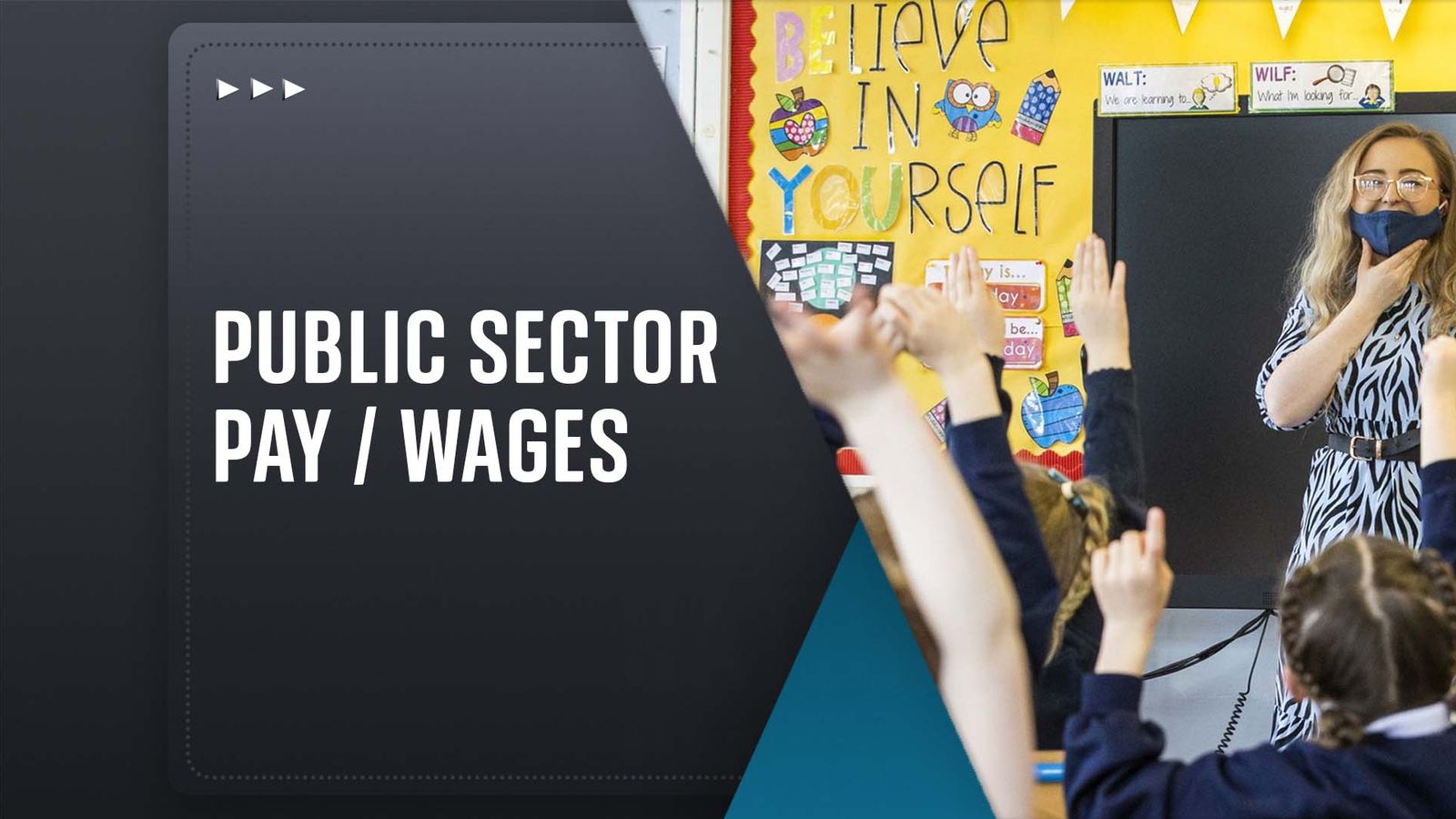Budget 2023: Money will have to be found from somewhere for public sector pay, says IFS

The government will have to find money to increase public sector pay or face consequences in its services, the Institute for Fiscal Studies (IFS) has warned.
Chancellor Jeremy Hunt outlined his spring budget on Wednesday, with promises of additional free childcare for working families and the scrapping of limits on pension pots to encourage people back to work.
However, despite his announcement taking place in front of a backdrop of mass strikes and a large protest outside Parliament, there was no mention of the ongoing pay disputes.
Politics live: Budget fallout continues as experts give their analysis
After analysing Mr Hunt’s plans, the economic thinktank said it “seems implausible that there won’t be extra money available” for public sector workers.
The IFS’ director, Paul Johnson, said: “You can’t keep cutting the pay of teachers, nurses and civil servants, both in real terms and relative to the private sector, without consequences for recruitment, retention, service delivery, morale and – as we have seen yesterday and today – strikes.
“Money will have to be found from somewhere.”
Mr Johnson also said the ongoing government defence that inflation-matching pay rises are unaffordable did not stand up to scrutiny “on the fact that Mr Hunt found £20bn a year yesterday for other things”.
“This is of course, as all of this is, a question of choices and priorities,” he added.
Advertisement
His remarks came ahead of an expected announcement on a new pay offer for NHS nurses and ambulance workers.
However, many other disputes are ongoing, with junior doctors, teachers, civil servants and rail staff all staging walkouts this week.
Please use Chrome browser for a more accessible video player
0:48
RMT union boss Mick Lynch said the new budget only benefited the rich.
Mr Johnson also warned households would feel “continuing pain” over the next year amid the continued cost of living crisis.
Yesterday, the chancellor announced that an analysis from the Office for Budget Responsibility (OBR) showed the UK would avoid falling into recession in 2023 and inflation was set to plummet to below 3% before the year was out.
But the IFS director said “prices remain much higher than two years ago” and “earnings haven’t caught up”.
Please use Chrome browser for a more accessible video player
2:49
Mhari Aurora explains all you need to know.
He pointed to Mr Hunt’s decision to freeze income tax and National Insurance thresholds for another year, saying it would cost most basic-rate taxpayers £500 annually and most higher-rate payers £1,000.
“The OBR may be relatively optimistic about the medium term, but it still thinks these will be the worst two years on record for household incomes,” said Mr Johnson.
“Its projections suggest that real household disposable incomes will be no higher in 2027 than they were in 2019, and barely higher than in 2017 – a lost decade for living standards.
“The OBR’s optimism on the economy may not be widely shared for a little while yet.”
Read more on the budget:
The key points of Chancellor Jeremy Hunt’s speech
Tax calculator – see if you’re better off
Who are the winners and losers? How three real households are affected
Ed Conway: There’s a feel-bad factor coming, and this budget won’t help
Overall, the IFS believed the outlook for the UK economy “still looks difficult”, with taxes continuing to rise and debt “barely” falling.
While Mr Johnson thought the budget “laid out some elements of a sensible strategy to support growth” in its attempts to increase incentives to work and invest, the number of people returning to employment would be “modest”, and policies like scrapping the lifetime allowance for pensions “probably won’t play a big part”.
But he said what the chancellor’s statement “should be remembered for” was the childcare announcement – opening up free hours to working parents of children aged nine months to four years.
“This is a major expansion of the welfare state,” said the director. “At the start of the century very little pre-school childcare was paid for by government. We will soon be spending over £8bn a year, with the government paying for over 80% of all formal childcare for pre-schoolers in England.
“That brings risks for the childcare market, if provision is not funded appropriately. But it also reflects a major change in both the scope of the welfare state and our expectations of what it should provide.”